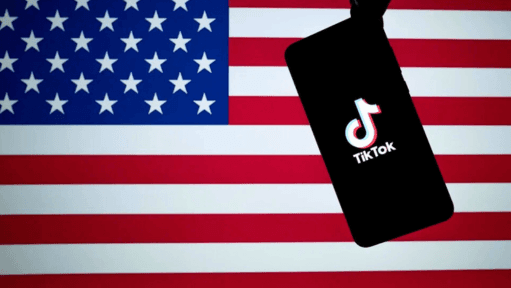
TikTok Faces Possible US Ban: Legal, Political, and Business Implications
National Security, Free Speech, and the Future of TikTok in the US
TikTok Faces Possible US Ban After Losing Court Appeal
TikTok is one step closer to being banned in the United States after losing a critical court appeal on Friday. The decision upholds a law requiring the popular video-sharing platform to separate from its Chinese parent company, ByteDance, by January 19, 2025.
This development intensifies tensions between the US and China, coming just as president-elect Donald Trump prepares to take office on January 20.
Supreme Court Appeal and Political Support
In response to the ruling, TikTok announced plans to appeal to the Supreme Court, hoping for a favorable outcome. “The Supreme Court has a strong history of protecting Americans' right to free speech, and we trust they will uphold these values in this significant case,” the company stated.
Unexpectedly, TikTok has found an ally in president-elect Trump, who has criticized the move to ban the app. Trump argues that a ban would primarily benefit Meta, Facebook’s parent company, which he accuses of suppressing conservative content. Trump himself was banned from Facebook following the January 6, 2021, Capitol riots.
National Security Concerns
The Biden administration and the US Justice Department allege that TikTok poses a national security threat by allowing the Chinese government access to sensitive user data and enabling the spread of propaganda. ByteDance and the Chinese government have strongly denied these claims.
The law, signed by President Joe Biden in April 2024, mandates that TikTok be removed from US app stores and web hosting services unless ByteDance sells the platform. While acknowledging TikTok's popularity among 170 million American users, a three-judge panel ruled that separating the platform from ByteDance was "essential to protect national security."
The judges dismissed the notion that the law violates free speech, stating it does not aim to suppress specific ideas or messages. They also concluded that alternatives to a ByteDance sale would not adequately address security risks.
Legal and Business Implications
US Attorney General Merrick Garland welcomed the decision, affirming the Justice Department’s commitment to protecting Americans' data from potential exploitation by authoritarian regimes.
This ruling marks a sharp contrast to Trump’s earlier stance. During his first term, he sought to ban TikTok over similar security concerns, but the effort was blocked by federal courts, which raised concerns about free speech implications.
Among Trump’s supporters in the recent election was Jeff Yass, a prominent Republican donor with investments in ByteDance, further complicating the political narrative.
TikTok’s Growing Presence and Uncertain Future
Despite legal challenges, TikTok continues to grow in the US. The platform recently reported $100 million in Black Friday sales for its new shopping feature and is projected to generate $15.5 billion in US ad revenue next year, capturing 4.5% of the digital ad market.
However, a ban would dramatically alter the social media landscape, benefiting competitors like Meta, YouTube, and Snap while disrupting creators and businesses that rely on TikTok for income.
Legal experts are divided on the case's future. Gautam Hans of Cornell Law School expressed skepticism that the Supreme Court would intervene, citing the unanimous ruling and the tight timeline before the law takes effect. Conversely, Carl Tobias of the University of Richmond believes the court may take up the case, given the significant implications for national security and free speech.
Conclusion
As the January 19 deadline approaches, TikTok’s future in the US hangs in the balance. Whether the Supreme Court intervenes or not, the outcome of this case will have far-reaching consequences for social media, free speech, and US-China relations.
For any enquiries or information, contact ask@tlr.ae or call us on +971 52 644 3004. Follow The Law Reporters on WhatsApp Channels